Switzerland is a small country in a sea of much larger countries on the European continent. One doesn’t associate it with typically boastful patriotism; it has prided itself on an outwardly neutral posture on the world stage, which has served its independence well. Regardless, it is my familial homeland, and on this day of August 1, a quiet boastfulness is appropriate. The birth origins of the country of Switzerland are more romantically and mythically linked then most countries. As history’s record would have it, in early August of 1291, a group of like minded proudly independent men met on the meadow at Rutli to form a confederation of three homelands, the current Swiss Cantons (or States) of Uri, Schwyz, and Unterwalden, to declare their mutual support , and assert their independence from the Austro-German Empire of the time. The Emperor Rudolf of Hapsburg had recently died, and the swiss homelands were concerned that their relative independence in action allowed by the old emperor were not likely to be respected by the new ruler. Legend has it the driving force for the pact was sealed by the actions of Wilhelm Tell, a Swiss archer who killed the evil and dictatorial Austrian bailiff Gessler, thereby throttling the independence movement.
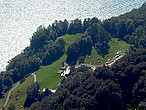
As with all independence movements the price to be paid was not without bloodshed; the difficult battle victories against the Hapsburgs at Morgarten in 1315 and Sempach in 1386 were required to cement the confederation’s independence in the eyes of the Holy Roman Empire. By 1353 the original three cantons had grown to eight, and further victories on the battlefield cemented the Swiss early reputation as invincible warriors and willing mercenaries. the Pope Julius II acknowledged this reputation in his selection of the Swiss Guards as his security force in 1506, a relationship that continues to this day.
The Swiss passion for fighting continued for hundreds of years in their need to fiercely guard their independence. It took the mighty armies of Napoleon to finally overrun the Swiss and abolish the canton structure, resulting in the formation of the Helvetic Republic in 1798 under French rule. It took no time at all for Napoleon to realize his mistake, and the independence of the unruly Swiss was re-established in 1803, and formalized permanently by Europe at the Congress of Vienna in 1815. Since the formal declaration of a Swiss Federation and Constitution in 1848, the cantons of Switzerland have maintained a position of neutrality in all future European conflicts, a course that has been maintained not without difficulty at times severe stresses.
The land now known as Switzerland centrally located on the European landmass has always served a pivotal role in European history. From its home to primordial Bronze age man establishing lake communities ~ 3800BC, through the tribes of Helvetii known to Caesar as guardians of the crucial passes through the alpine backbone of Europe, to the early Christian monasteries established by St Gotthard and St Bernard, as a home of the Reformation drive by the Swiss theologians Calvin and Zwingli, through its current reputation as an engineering, banking and manufacturing powerhouse belying its size, the nation of Switzerland has been an important player in the development of western civilization.
Oh…and its not bad looking, either. Happy Birthday, Switzerland!
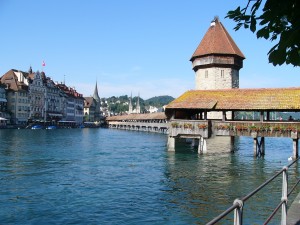
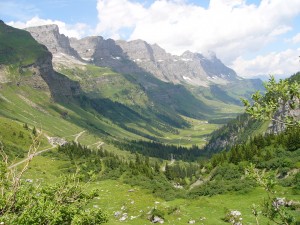
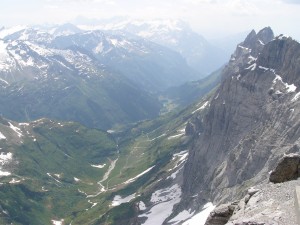
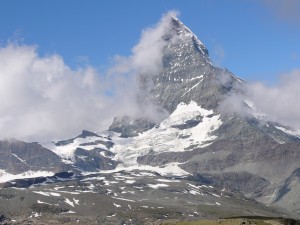 …and a little video of martial pride…
…and a little video of martial pride…